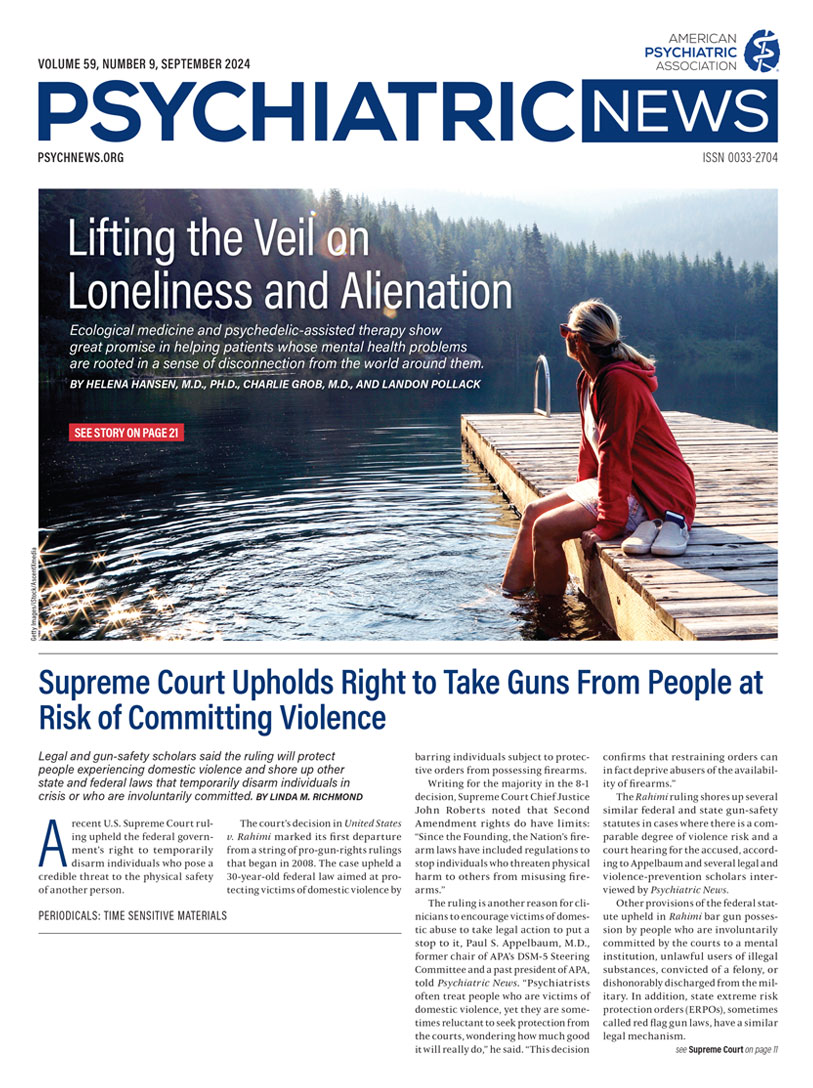App Advisor—APA’s popular tool for mental health professionals and patients to evaluate and rate the thousands of mental health smartphone apps—is getting a facelift.
In order to keep pace with evolving digital technology, App Advisor will be updated in 2025 with new questions added to its evaluation model. The new questions will help users screen mental health apps for how well they incorporate issues related to diversity and equity, language, cultural differences, and other matters that may be relevant to mental health professionals and patients.
App Advisor will also be updated with educational material to help practitioners assess the digital literacy of patients. “Technology keeps changing, and we have realized after several years of good success that it was time to update App Advisor and the questions we pose in the Advisor’s evaluation model to make sure they reflect what technology can and can’t do, and the risks and benefits of mental health apps,” said John Torous, M.D., co-chair of the 12-member
expert panel that developed and monitors App Advisor.
Only a small portion of the thousands of mobile health apps available to consumers are regulated by the Food and Drug Administration (FDA), but interest in using them is high among the general public. Psychiatrists, clinical psychologists, psychotherapists, and other mental health clinicians are increasingly faced with questions regarding the efficacy and risks of mobile and online apps.
In the 12-month period ending June 2024, App Advisor had more than 9,000 users; more than 7,000 people used the App Advisor evaluation model. “There is no well-established way to evaluate an app, but App Advisor has become one of the leading methods and has been widely adopted,” Torous said.
The
Comprehensive App Advisor Evaluation Model employs a hierarchical rating to help users become familiar with important information that should be considered when picking an app. It is not intended to provide a recommendation, endorsement, or criticism of any particular app, but rather serves as a tool for users to do their own evaluation of an app they might be considering.
The model poses a series of questions in step-wise fashion about five broad topics: background and access; privacy and safety; clinical foundation; usability; and data integration and therapeutic goal. A sample of the questions for each category includes:
•
Background and access: Does the app identify ownership? Does the app identify funding sources and conflicts of interest? Are there additional or hidden costs? On which platforms/operating systems does it work?
•
Privacy and safety: Is there a transparent privacy policy that is clear and accessible before use? Does the app declare how data will be used? Can a user opt out of data collection or delete data?
•
Clinical foundation: Does the app appear to do what it claims to do? Is there evidence of specific benefit from academic institutions, publications, end user feedback, or research studies? Is there evidence of effectiveness/efficacy?
•
Usability: What are the main engagement styles of the app? Is it customizable? Does the app seem easy to use?
•
Data integration and therapeutic goal: Is the app for individual use or to be used in collaboration with a provider? If intended to be used with a provider, does the app have the ability to export or transfer data? Does the app lead to any positive behavior change or skill acquisition? Does the app improve therapeutic alliance between patient and provider?
Darlene King, M.D., a member of the expert panel and chair of the APA Committee on Mental Health Information Technology, said new questions about language and culture will be prominent in the updated evaluation model. “We want to explore ways to improve the model’s sensitivity to issues of diversity, equity, and inclusion,” King said. “We also want to look into developing information on App Advisor to help mental health professionals better assess the digital literacy of their patients.” ■

